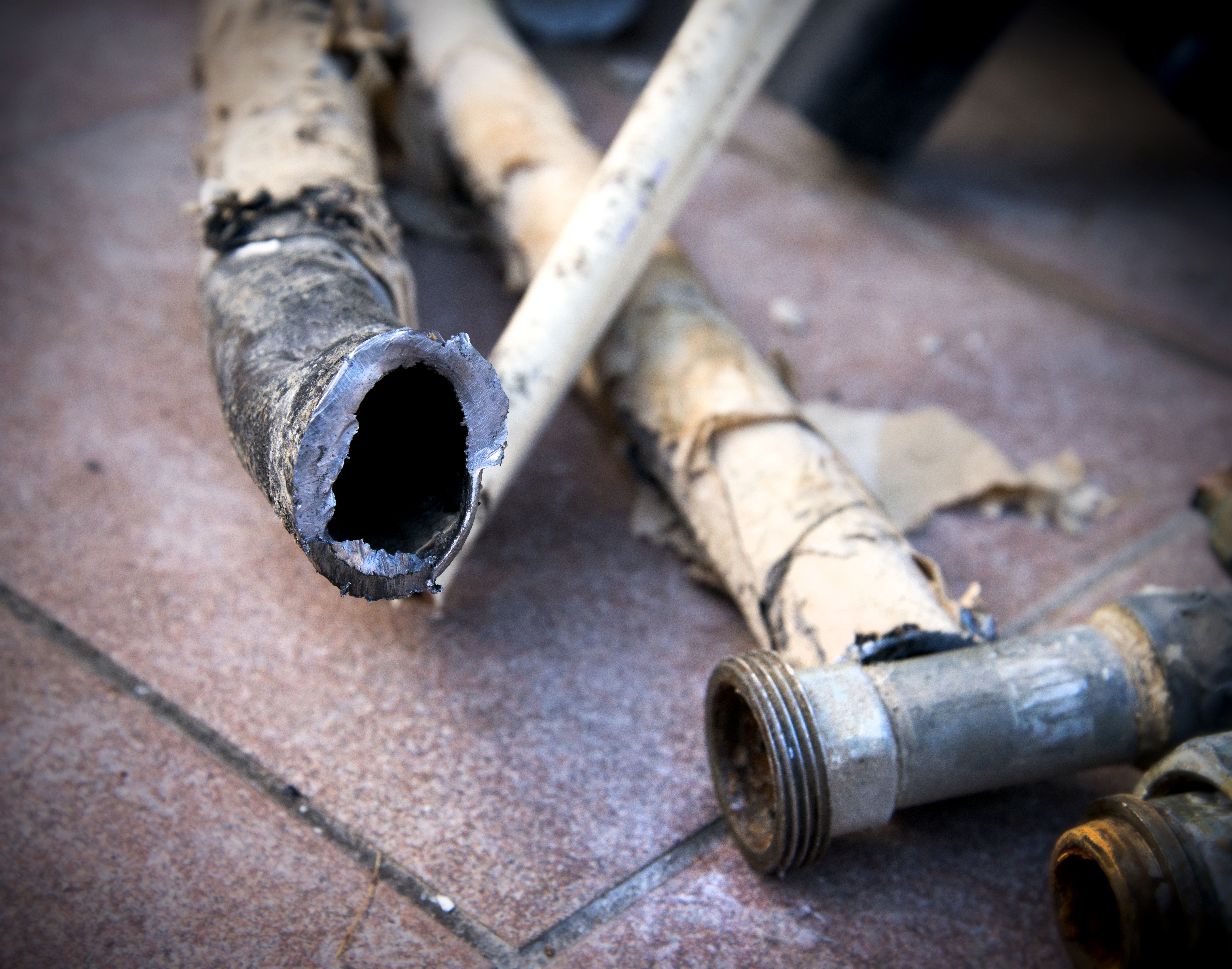A new plan from President Joe Biden's administration would require local water utilities across the country to remove all lead pipes within a decade. While environmental groups are celebrating the announcement, there are some loopholes in the proposal that could affect consumers.
The Environmental Protection Agency has said it could cost as much as $45 billion to replace the country's lead pipes, The Washington Post reported.
That cost might get passed onto consumers in their water bills as it will ultimately be up to utility companies to decide whether to pay the full cost of replacing the pipes.
"The good news is that the Bipartisan Infrastructure Law made the largest single investment in U.S. history. This was a Biden administration advance that they got $15 billion dollars that's going to pay just for pulling out lead pipes. So that's going to take a huge bite out of the problem," said Erik D. Olson, an expert with the Natural Resources Defense Council.
We've got the news you need to know to start your day. Sign up for the First & 4Most morning newsletter — delivered to your inbox daily. >Sign up here.
Olson has been on the front lines of the lead crisis for three decades.
"We did an assessment of EPA's data, and we found that tens of millions of Americans are drinking water from water systems that have lead contamination in them," Olson said. "So, Washington, D.C., is certainly one of the cities that has a big lead pipe problem."
Lead crises have hit poorer, majority-Black cities like Flint, Michigan, especially hard, propelling the risks of lead in drinking water into the national consciousness. In 2004, D.C. dealt with a similar situation after lead spiked to dangerous levels in residents' drinking water.
Exposure to any amount of lead is dangerous for young children, and can severely harm mental and physical development — slowing down learning and damaging the brain, the EPA said. In adults, lead can cause increased blood pressure, heart disease, decreased kidney function and cancer.
The EPA said tighter standards would improve IQ scores in children and reduce high blood pressure and heart disease in adults.
While Biden's plan addresses the millions of pipes across the country maintained by utility companies, it doesn't address the lead pipes that are on private property connecting homes to the service lines.
"This is one of our big worries, and there was actually a study done in Washington, D.C., that EPA cites and everybody else cites, because what was found was when you charge people, individual homeowner or landlord, to pay for that replacement of the lead pipe, a lot of low income people and a lot of landlords just don't pay that. So the pipe doesn't get replaced," Olson said.
"So, it's key for the water utilities to have to pay for that, to be held accountable for paying for it. And this proposed rule, one of the shortcomings is it's not explicitly requiring the utilities to cover that full cost. We're gonna fight to try to get the EPA to make that happen," Olson said.
What D.C. utility companies say about the plan
"Funding for private side lead replacements within the proposed rule’s timeframe is an area of concern, and more work will be needed to address funding gaps while balancing the simultaneous imperatives of aging infrastructure and customer affordability," DC Water said in a statement to News4.
A spokesperson for DC Water told News4 there are an estimated 46,000 lead service lines, which are in the process of being replaced.
To meet the timeline in the proposed rule, DC Water said it would need to advance three initiatives outlined in its 2023 "Lead Free DC Plan."
- Secure the requisite level of federal funding to reduce the financial burden on ratepayers
- Collaborate on a D.C. legislative mandate that would require all residents to work with DC Water to replace the private side of their service lines so that every line is replaced
- Continued partnership with agencies within the District to facilitate cost-effective, efficient and minimally disruptive line replacements
"DC Water remains committed to providing our customers with affordable drinking water. We are pursuing as much federal grant money as possible and are proactively exploring additional funding options for our Lead Free DC program," the company said.
WSSC Water said in a statement it's "currently reviewing our plumbing records and creating an inventory of the materials used for private property water service lines. We will conduct extensive public outreach and work with our customers to verify the pipe material and replacement options. We will also continue to work with our state and federal partners, including EPA to secure funding for this effort."
"After an extensive search in the early 2000s, we replaced all lead service lines from the WSSC Water main to the property line. As an additional measure of public safety, we add a corrosion inhibitor, orthophosphate, to the water supply, which creates a protective coating on the inside of pipes (including those on customer's property)," WSSC Water said. "These proactive measures are showing clear results. In our latest round of lead and copper testing from homes throughout our service area, our results were well below action levels set by the U.S. Environmental Protection Agency."
The D.C. government has a program to help homeowners pay for replacing lead pipes on private property.
The EPA will accept public comments about the plan for 60 days and will hold a virtual public hearing on Jan. 16. After that, it is aiming to have a final version of the rule ready by next fall.
Go here to learn more about the proposed Lead and Copper Rule Improvements.
The Associated Press contributed to this report.




